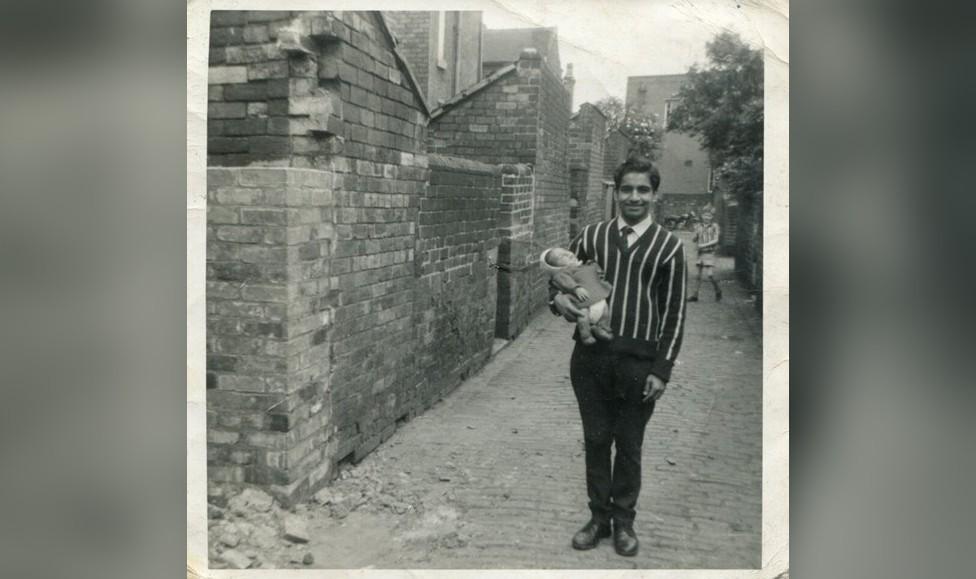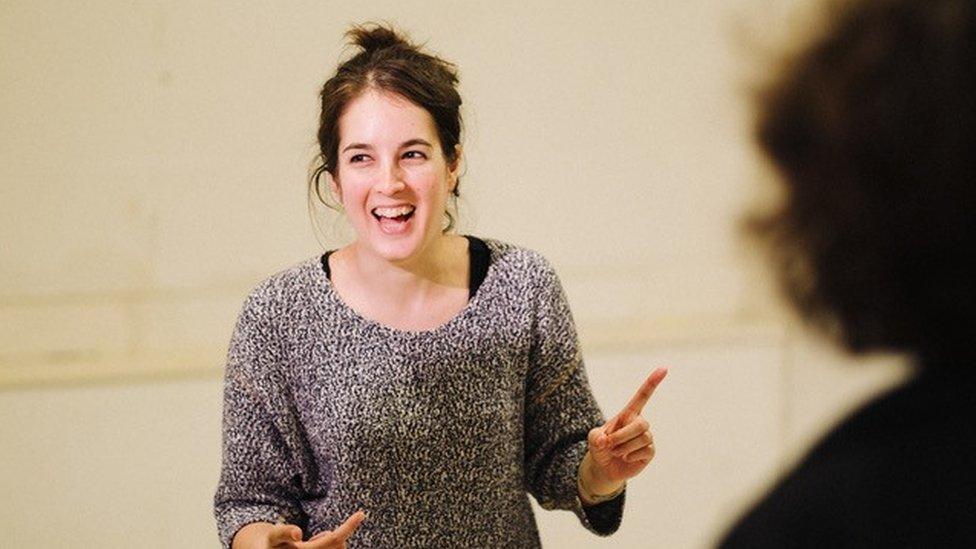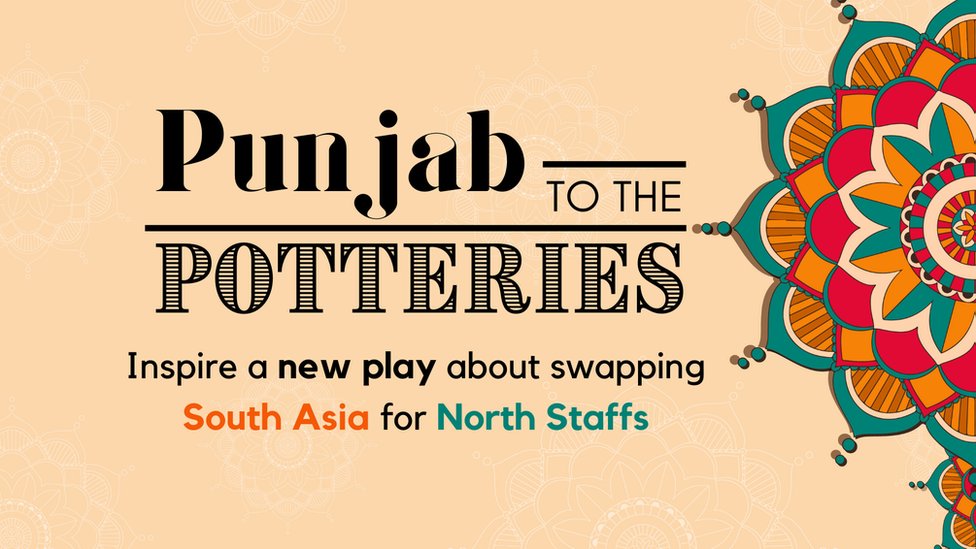South Asians invited to tell stories for new theatre plays
- Published

Punjab to the Potteries has been inspired by Baldev Bansal, who migrated to Stoke-on-Trent in 1964
A Staffordshire theatre is inviting local people with South Asian heritage to share family stories for a chance to have them turned into new plays.
Punjab to the Potteries will tell stories of those who migrated from the Punjab region in India and Pakistan.
New Vic Theatre and local arts company, Appetite, have commissioned two scriptwriters to write the plays.
Members of the public have been invited to attend an open storytelling event in Newcastle-under-Lyme on 28 April.

Writer and director Sarah Bedi, and playwright Shahid Iqbal Khan will write the scripts
Playwright Shahid Iqbal Khan and writer and director, Sarah Bedi, will help collect the stories and develop them into scripts.
Gemma Thomas, director at Appetite, said the idea for the project had been inspired by local man Val Bansal, who had shared his family's story of migration from the Punjab in India.
"We want to hear from, celebrate and capture people's lived experiences of migrating to the Potteries, or being born here and raised in a South Asian family," she added.
Mr Bansal's father, Baldev, had migrated to Stoke-on-Trent as a teenager in 1964, becoming one of the first Sikh families to arrive in the area.
His grandad, Rattan, had moved from India to Kenya to find work as a carpenter, before moving to England.

Members of the South Asian community are invited to attend an open storytelling event on April 28
"Punjab to the Potteries was an idea that came about when sorting out old photos at home," Mr Bansal said.
He described how the photos had inspired an "abundance of questions" about what it must have been like for his father to leave a small village to move "half-way around the world" to Staffordshire.
"Leaving family behind, learning a new language, adapting to a new culture, education and work, food, the list is endless," he explained.
"There must be countless stories and memories, as well as many more photos in numerous households of people and families who took a similar journey."

Follow BBC West Midlands on Facebook, external, Twitter, external and Instagram, external. Send your story ideas to: newsonline.westmidlands@bbc.co.uk, external
Related topics
- Published8 March 2023
- Published8 April 2022

- Published15 August 2011

- Published6 February 2023
